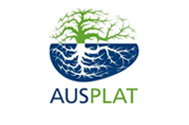Third Roundtable for 2024
We shared in three presentations on the theme of “Just-in-Time ‘Big Issue’ Practice-sharing”:
John Malouf – Three Assignments Resistant to AI (Big issue is Designing assignments in the era of Generative AI);
Esther Chan – Incorporating AI literacy and cultural awareness in research training for educational and developmental psychology students at the Master’s level (Big issue is How to incorporate cultural awareness and AI literacy in research training for psychology students); and
Trisha Nowland and Thaatsha Sivananthan – Building reflexivity via reflective writing practice for psychology undergraduates (Big issue is Supporting development of reflexivity skills in psychology undergraduates).


